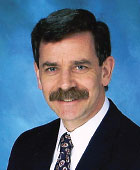Psychedelic Medicine: Much More Study Needed
Abstract

Stanley Caroff, M.D., is a professor of psychiatry at the University of Pennsylvania Perelman School of Medicine.
While new-age spiritual claims for “expanding one’s consciousness” through psychedelic “trips” have been celebrated through popular media recently, the report in the March 1 issue of Psychiatric News (“Is Psychedelic Medicine on the Horizon?”) should serve as a timely warning for psychiatrists and APA to take a closer look at this movement and provide a balanced and scientific analysis of the benefits and risks of these drugs.
As presented in the article, evidence for these drugs, resting on small, selective, “early stage” pilot studies, is weak and adds to sensationalized accounts, downplaying the potentially serious consequences of “triggering a psychotic episode” and “misusing these substances” in vulnerable populations.
These are fascinating chemicals that could be valuable as experimental probes to better understand neurophysiology underlying not only sensory perceptions but also their higher-level associated emotional salience. While these drugs distort perceptions leading to illusions and hallucinations, they also appear to alter conscious interpretations analogous to special meanings ascribed to objects or experiences as in omens, premonitions, ideas of reference, and delusional perceptions. The problem is the valence of the response is unpredictable; so while a patient dealing with terminal illness may find comfort and spiritual meaning in death, a troubled and insecure teenager may perceive a posting on social media as a personal threat of impending disaster and attempt suicide.
The breakthrough status granted by the FDA is not reassuring as the agency is under increasing pressure to reduce bureaucratic delays in approving new therapies.[“Breakthrough status” means that the FDA will expedite the review process for a drug the agency classifies as filling an unmet need in medicine.]
The very idea of expediting the approval of psychedelic drugs amid the ongoing catastrophe following mass marketing of opioids, not to mention the continuing public health impact of other reality-altering substances (alcohol, tobacco, stimulants) and the rush to commercialize marijuana by industry and government, is alarming and should give regulatory agencies pause.
By all means, we should support advances in basic neuroscience to create and investigate innovative treatments, but let’s not jump on the bandwagon of every “big new thing” passing by. ■
See related article “Psychedelic Medicine: Careful Studies, Regulations Are the Answer.”



